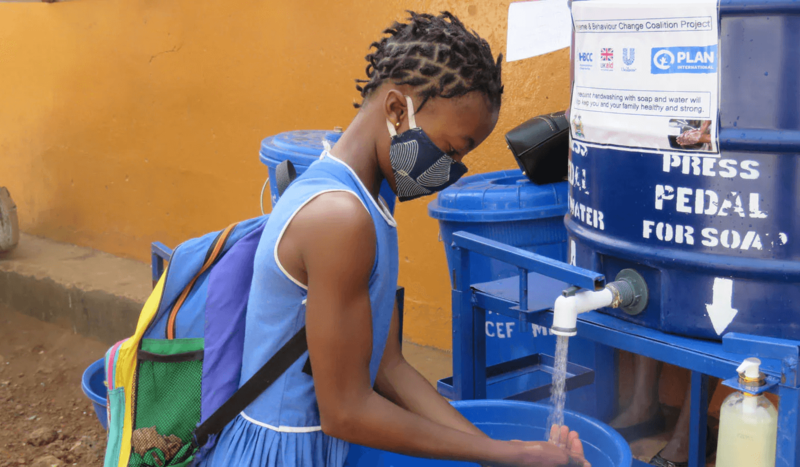
Vodafone Foundation donates €30,000 to support Mozambique over Cyclone Chido
Vodafone Foundation has pledged €30,000 to Save the Children in response to the devastation caused ...

The Hygiene and Behavior Change Coalition (HBCC) – which was created by Unilever and the UK government, Lifebuoy and Domestos, alongside other Unilever hygiene brands – have helped to reach a billion people through HBCC hygiene behavior programs.
“Our business has a century-long history of promoting hygiene through our brands, but this unprecedented crisis called for an unprecedented response,” says Rebecca Marmot, Chief Sustainability Officer of Unilever.
The UK government’s Foreign, Commonwealth and Development Office (FCDO) and Unilever jointly launched the £100 million HBCC global effort in March 2020.
Unilever also led the creation of a bespoke HBCC hygiene campaign: Hands–Face–Space–Surface. The campaign teaches and reminds people of the importance of key hygiene behaviors in the fight against Covid-19. It has been translated into more than 30 languages and will be aired in over 18 countries.
Unilever, with its expertise in hygiene behavior change and mass media communications, has worked with 21 NGOs and UN partners via the HBCC to implement on-ground programs and run mass media campaigns, aimed at raising hygiene awareness and teaching hygiene principles.
Unilever’s hygiene brands Domestos and Lifebuoy have a long history of hygiene programming. The HBCC projects have been established using these existing evidence-based programs, benefiting from proven behavior-change methodology.
Through HBCC initiatives, over 500,000 handwashing stations have been installed around the world and over 140,000 community health workers and teachers have been trained to deliver information on the importance of correct hygiene practice. More than 75 million Unilever hygiene products, including Domestos bleach and Lifebuoy soap and hand sanitizer, have also been donated and distributed in over 60 countries.
The HBCC was designed to reach populations and communities whose living conditions increased their susceptibility to contracting Covid-19 and other infectious disease. NGO and UN partners were selected based on their experience and expertise in delivering programs to vulnerable communities, such as refugees.
Working with partners such as the UN Refugee Agency (UNHCR) and the International Rescue Committee (IRC) has allowed the HBCC to establish specialist programmes that can effectively support people living through some of the world’s worst humanitarian crises, including in Cox’s Bazar in Bangladesh. Over 30 million Unilever hygiene products have been donated to UNHCR for direct distribution to refugee communities.
“Public–private partnership has been critical, allowing us to leverage the influence, expertise and networks of both government and business, and our strong network of NGO and UN partners, at home and overseas. We’re pleased to work together with partners to implement initiatives to address the pandemic at scale,” says Rebecca Marmot, Unilever’s Chief Sustainability Officer.
Vodafone Foundation has pledged €30,000 to Save the Children in response to the devastation caused ...
The European Commission has adopted a decision to disburse €1 billion in loans to Egypt following ...
Opening the Helwan University clinic brings the total number of Safe Women Clinics to 48 ...


اترك تعليقا